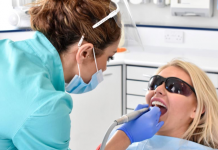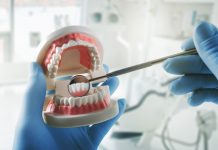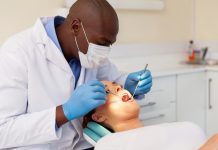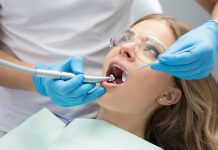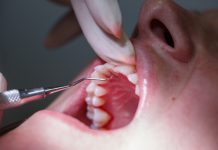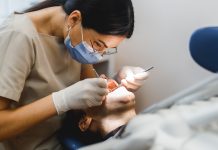Tess Player, VP, Global Head of Expert and Influence Marketing, GSK Consumer Healthcare, discusses how low public understanding of oral health is symptomatic of the need for better everyday health education
At a time when our healthcare services are pushed to their limits, knowing how to look after our own health at home has never been more important. Good health literacy minimises unnecessary GP trips and helps to create sustainable communities whose habits prevent avoidable conditions before they develop.
The good news is that we won’t need to climb mountains to make tangible improvements to our everyday health. In fact, one of the easiest ways for people to build their body’s resilience is by doing the same thing they’ve always done – but doing it that little bit more thoroughly.
Take brushing our teeth: only about 80% manage to do it regularly twice a day (often using whatever toothpaste happens to be on offer in the supermarket that week), but a recent study from GSK Consumer Healthcare (GSK CH) revealed that very few of us truly understand its wider health benefits or know when we need to use specialised products and seek a dentist’s opinion.
Only 47% of women know that good oral healthcare can support a healthier pregnancy
Diving deeper into the GSK CH study, conducted in partnership with Ipsos, general understanding of the risks associated with poor oral health care during pregnancy was also worryingly low. Academics have shown that during pregnancy, higher hormone levels can change the way the body reacts to plaque build-up, causing swollen gums. This is an early sign of periodontitis, which increases the risk of giving birth prematurely. In our study, only 47% of women knew that good oral healthcare could support a healthier pregnancy, with a lower risk of complications.
The best way to diminish these avoidable risks is by maintaining good oral health habits and seeking advice from healthcare professionals. Unsurprisingly, 70% of respondents who do visit the dentist more frequently compared to pre-Covid times were aware of the benefits of good oral health on supporting a healthy pregnancy. However, without the health industry taking steps to address these knowledge gaps, preventable issues will persist.
Managing a sweet tooth – the links between oral health, diabetes and heart disease
Poor oral health can also cause gum inflammation and infection, making it difficult for the body to control blood sugar levels, and respond appropriately to insulin. This is dangerous for Type 1 and Type 2 diabetes sufferers, whose high saliva glucose levels already put them at increased risk of dental decay – and can therefore create a vicious cycle of health issues. Again, scientific studies have reported widely on this, but only 44% of respondents over 50, a high-risk group that’s more likely to develop type 2 Diabetes, were aware of the link.
Moreover, the bacteria that attacks gums can spread into the bloodstream and cause inflammation elsewhere, leading to increased chances of developing heart disease. Again, just 56% of respondents were aware that good oral health habits can mitigate the risk of developing cardiovascular disease.
There’s appetite for better self-care – so let’s embrace it
If there is any silver lining to the pandemic, it is that people are determined to take better care of their everyday health. In another study from GSK CH and Ipsos, 65% of Europeans were now more likely to consider their health in day-to-day decision-making, with the vast majority recognising the importance of relieving pressure on an already overstretched healthcare system.
So how can we ensure that better oral health education – and guidance to improve other everyday health habits – is available to those who want and need it?
In short, through collaboration between private, public, and Government institutions around the world. For example, community pharmacies and dentists can use their face-to-face time with patients to emphasise the importance of specialist toothpastes and twice-daily brushing. Health companies can use their customer insights, packaging, and platforms to build educational campaigns across a range of consumer channels, including collaboration with health experts. And Governments can increase funding in preventative healthcare – currently only at 3% across European authorities compared to 80% in reactive care – to ensure that professionals and education centres have the resources they need to improve health literacy wherever they can.
So next time you brush your teeth, spare a thought for the far-reaching benefits of those simple two minutes twice a day and make them count. It may be a small act – but it may have big benefits for your body, your community, and even the frontline health workers under pressure to keep our society safe and well.
Editor's Recommended Articles
-
Must Read >> Oral health & optimal dental care in Europe
-
Must Read >> The importance of good oral health
-
Must Read >> Oral health and restorative dentistry
-
Must Read >> Periodontal disease: Structure of Mfa1 fimbriae




